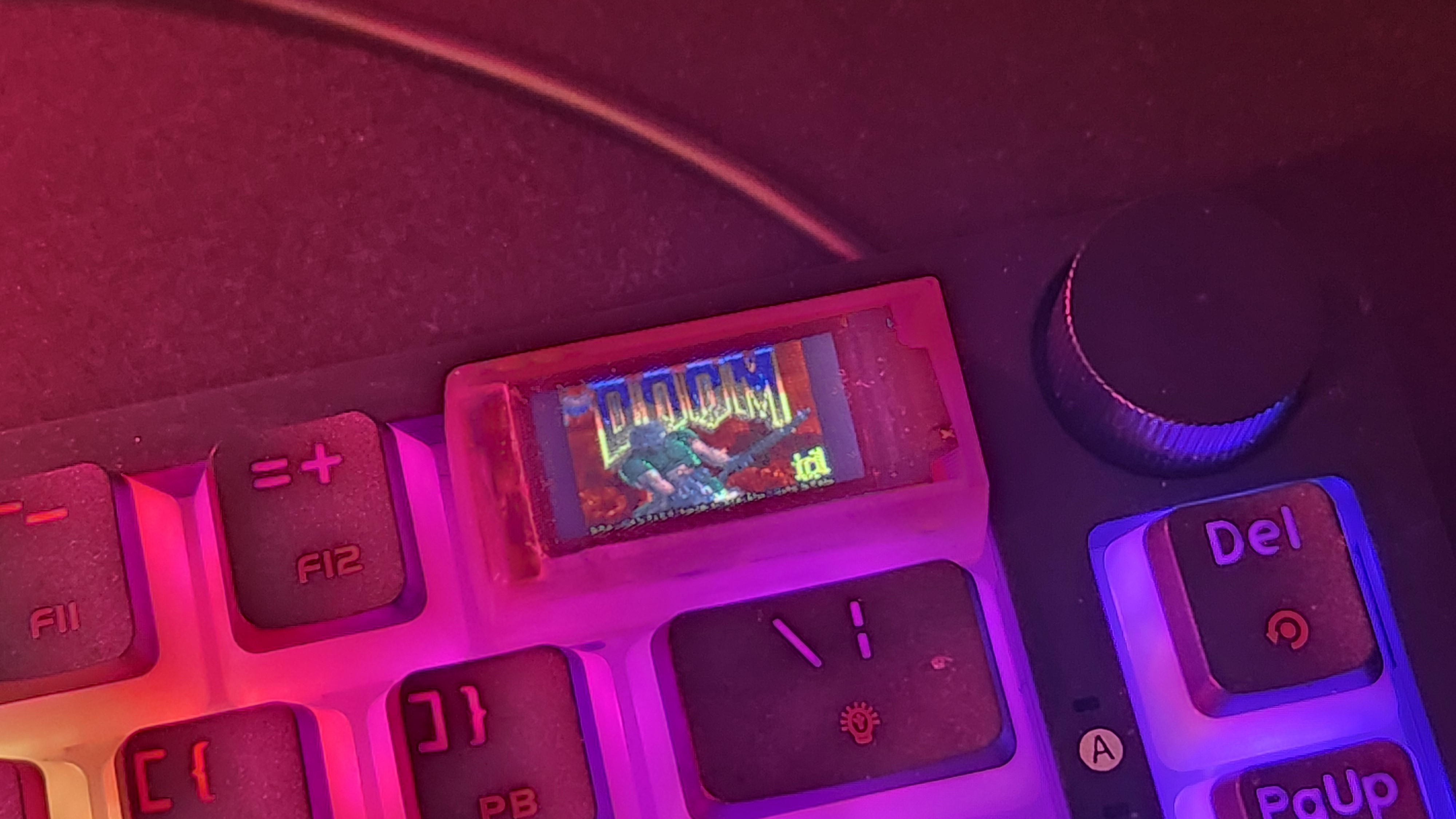Never mind a gaming keyboard – how about a keycap that can run Doom?
Latest ‘Doom works on’ feat sees the shooter running in… a keycap?

Age-old first-person shooter Doom has, at this point, a history of being run on all sorts of improbable hardware, and the latest achievement is running the game in a keycap.
Yes, you read that right. You may be scratching your head at this point – a keycap, meaning the actual plastic key molds that make up the letters and characters on your keyboard – can’t do anything, right?
Right, but in this case, it’s a keycap with a tiny little computer board embedded inside.
Tom’s Hardware spotted that Bob from TheKeebProject took a Raspberry Pi RP2040 chip, put it in a tiny custom-built PCB (printed circuit board), and inserted that inside a keycap (the slightly larger backspace key).
The tiny RP2040 is able to run Doom, albeit a heavily modified version of the game. In fact, it runs a fork of a Doom port for the RP2040 (by Graham Sanderson), one that’s derived from Chocolate Doom (a ‘minimalist’ port of the game).
Analysis: Doom running on a chip that costs next to nothing
The best gaming keyboards have all sorts of perks, but we’ve never seen a game embedded on a dedicated chip inside a keycap before – this is very definitely a first, and an eye-opening one at that.
Remember, Doom is running on an RP2040 microcontroller with two CortexM0+ CPUs pitched at 133MHz and coupled with just 264K of RAM. This is a computer board that costs less than a buck, and it can run Doom – with caveats, as mentioned above, but still.
Get daily insight, inspiration and deals in your inbox
Sign up for breaking news, reviews, opinion, top tech deals, and more.
Bob observes that the ported version of Doom keeps a lot of the original functionality, such as the resolution of 320 x 200, stereo sound, and network multiplayer is even in here.
Doubtless we'll continue to see the title that changed PC gaming forever running in all sorts of weird ways, because this has definitely become a thing (TM) with Doom in contemporary times. At this point, if Doom was spotted running on a pair of nail clippers, we wouldn’t be too shocked.
Darren is a freelancer writing news and features for TechRadar (and occasionally T3) across a broad range of computing topics including CPUs, GPUs, various other hardware, VPNs, antivirus and more. He has written about tech for the best part of three decades, and writes books in his spare time (his debut novel - 'I Know What You Did Last Supper' - was published by Hachette UK in 2013).